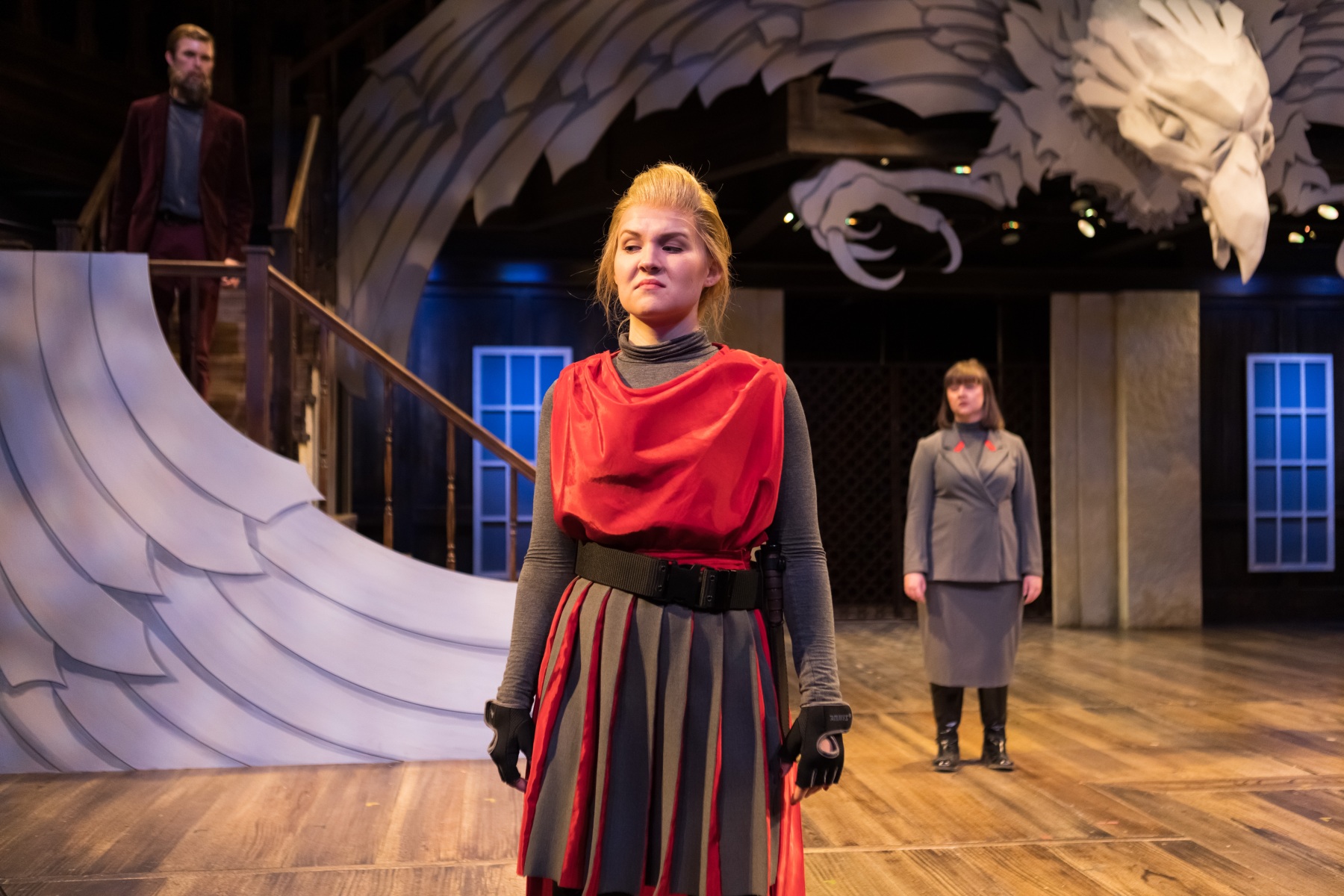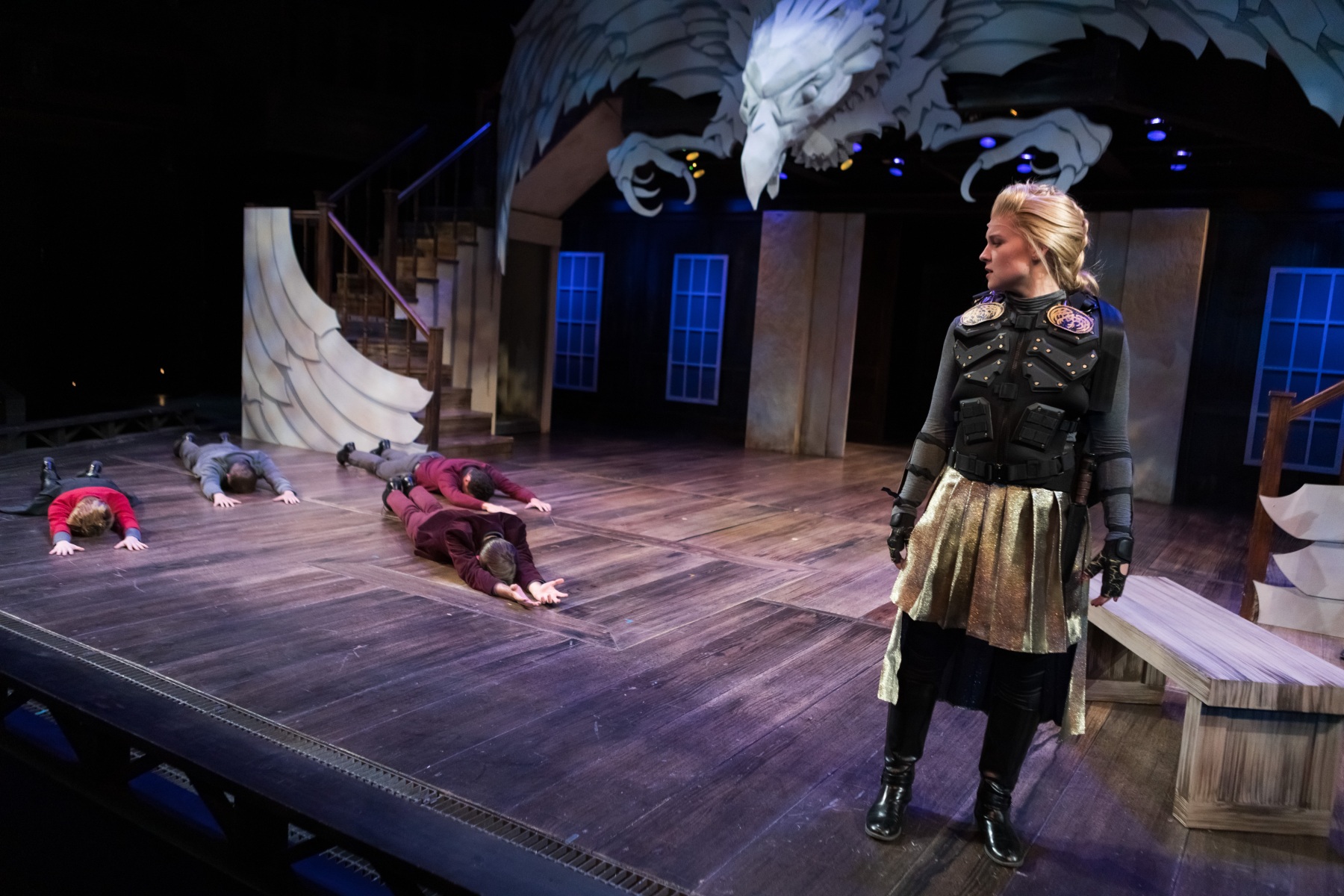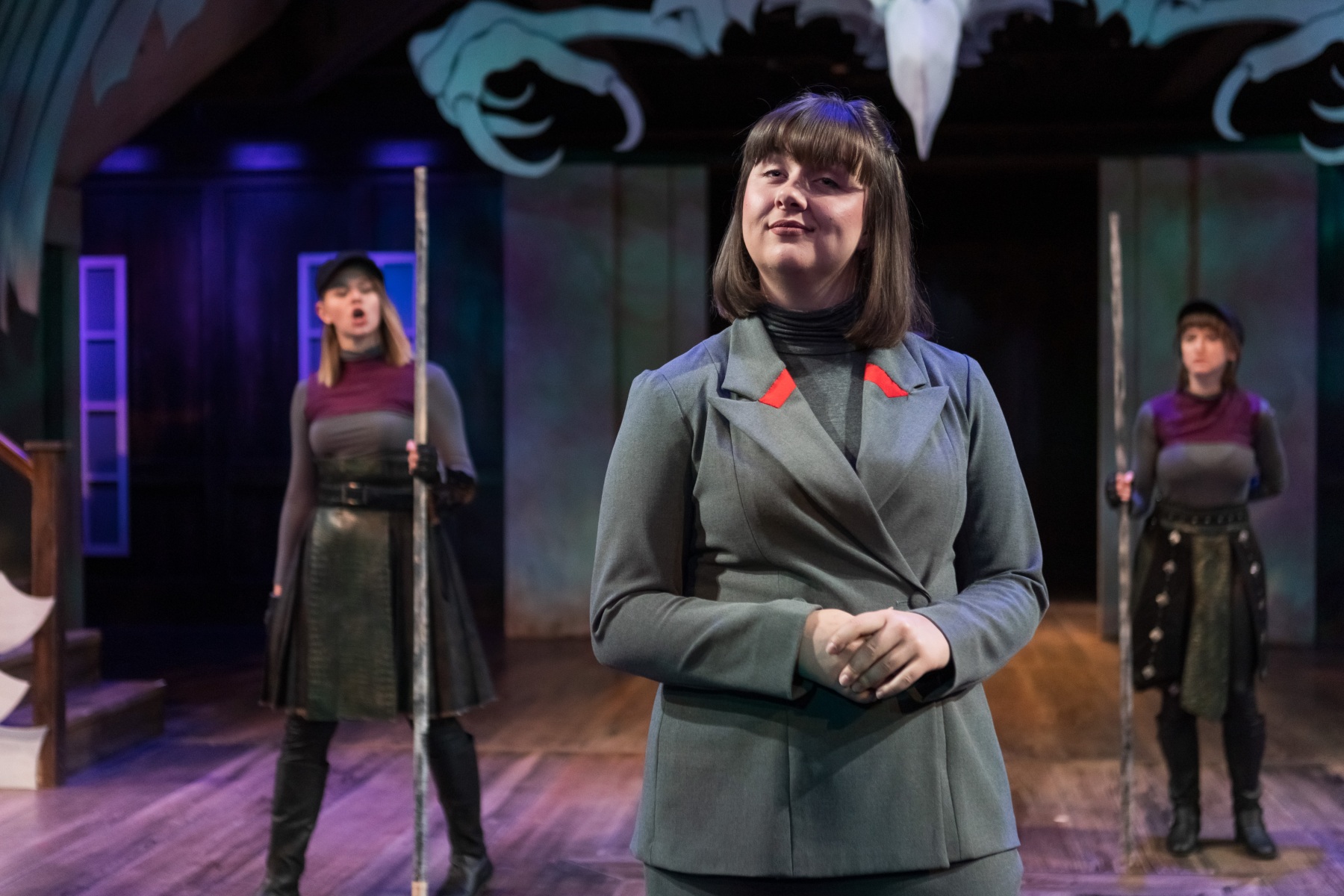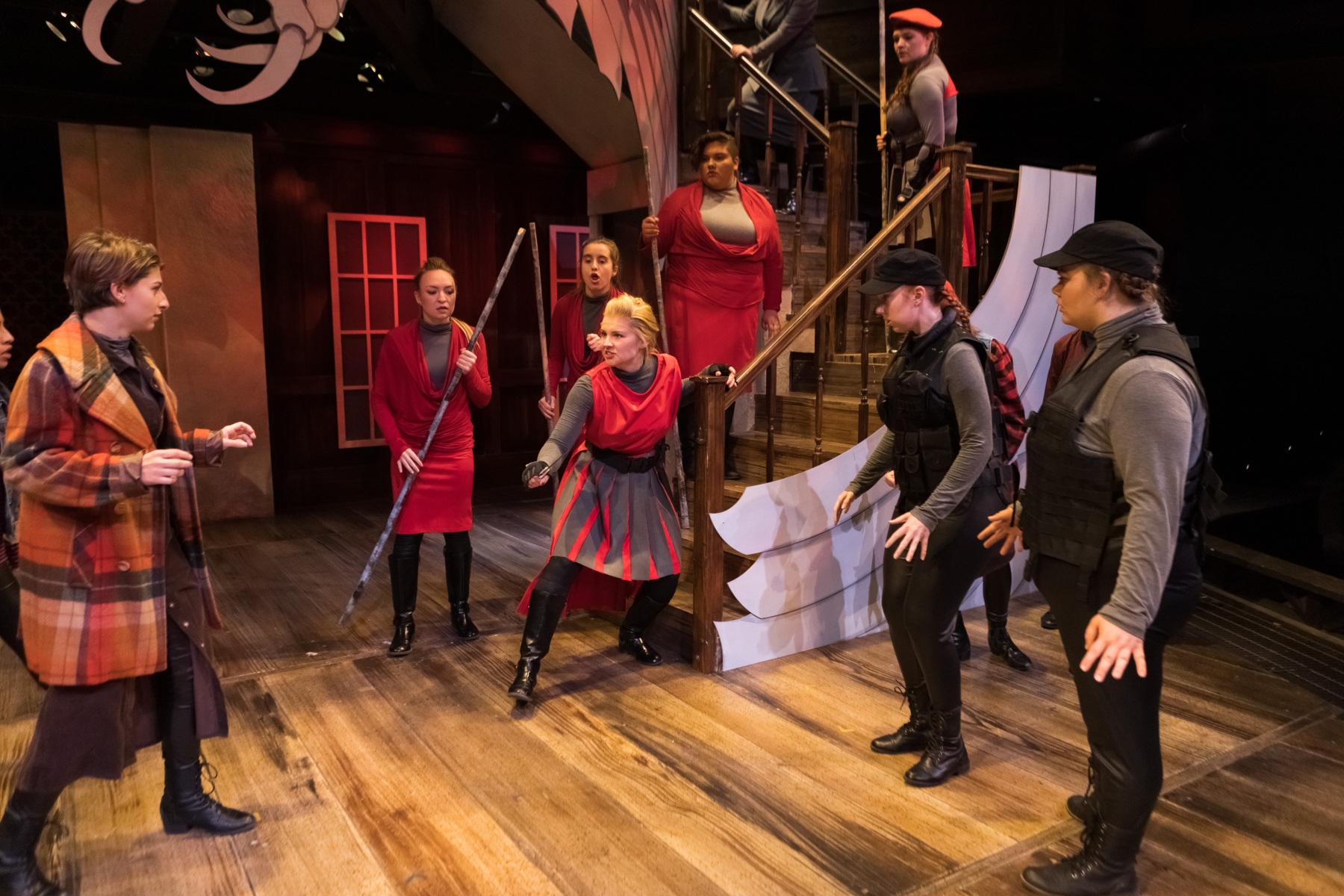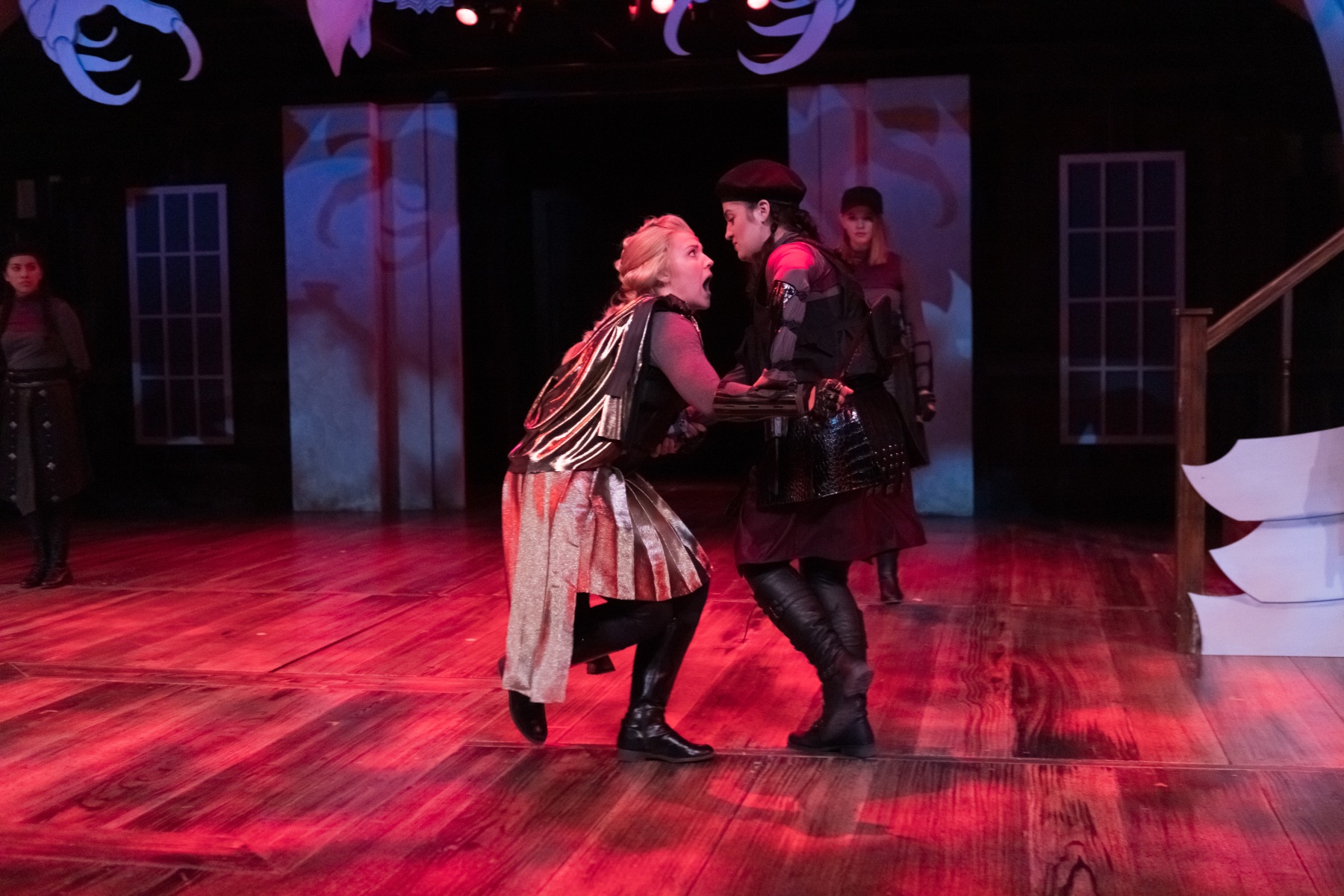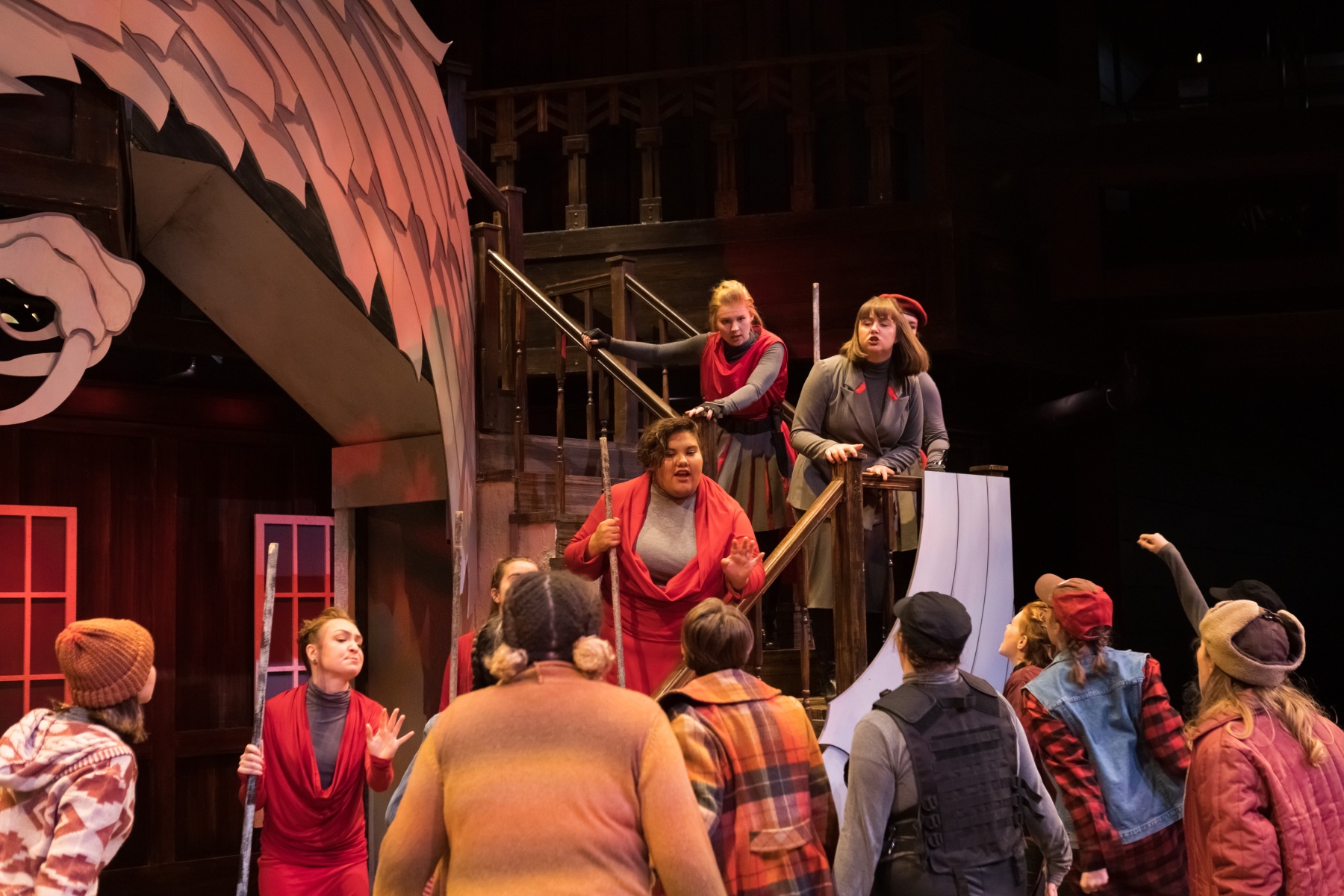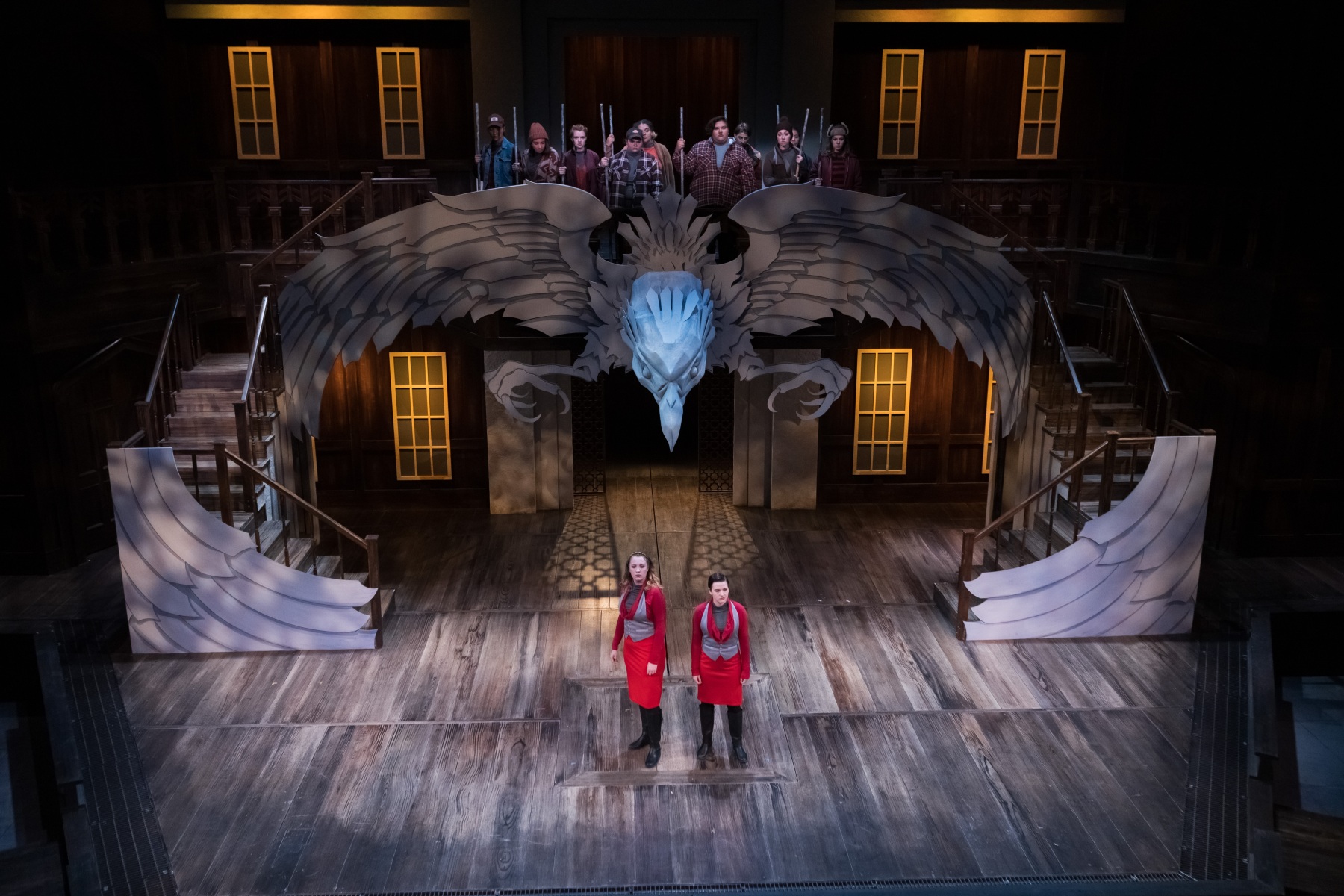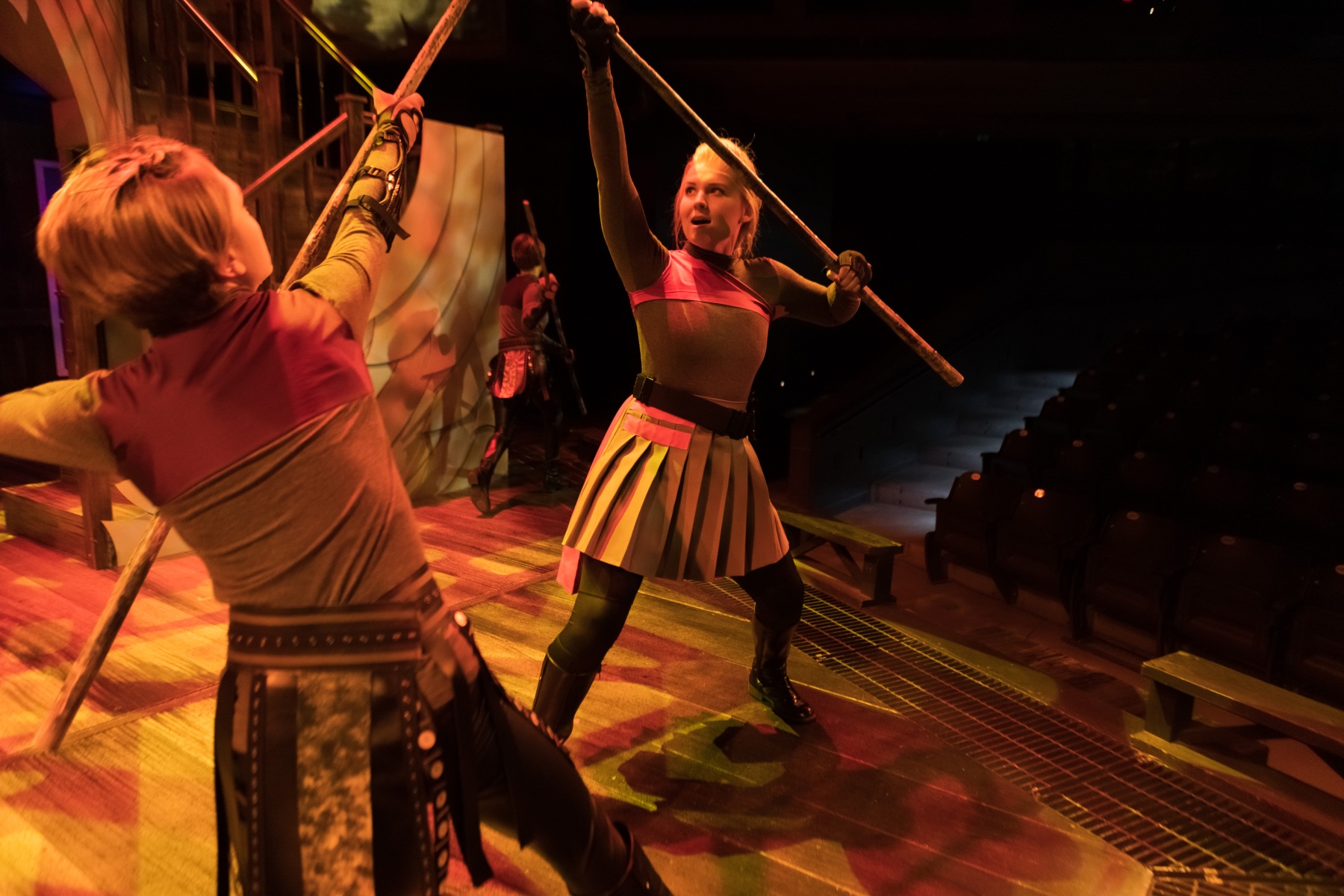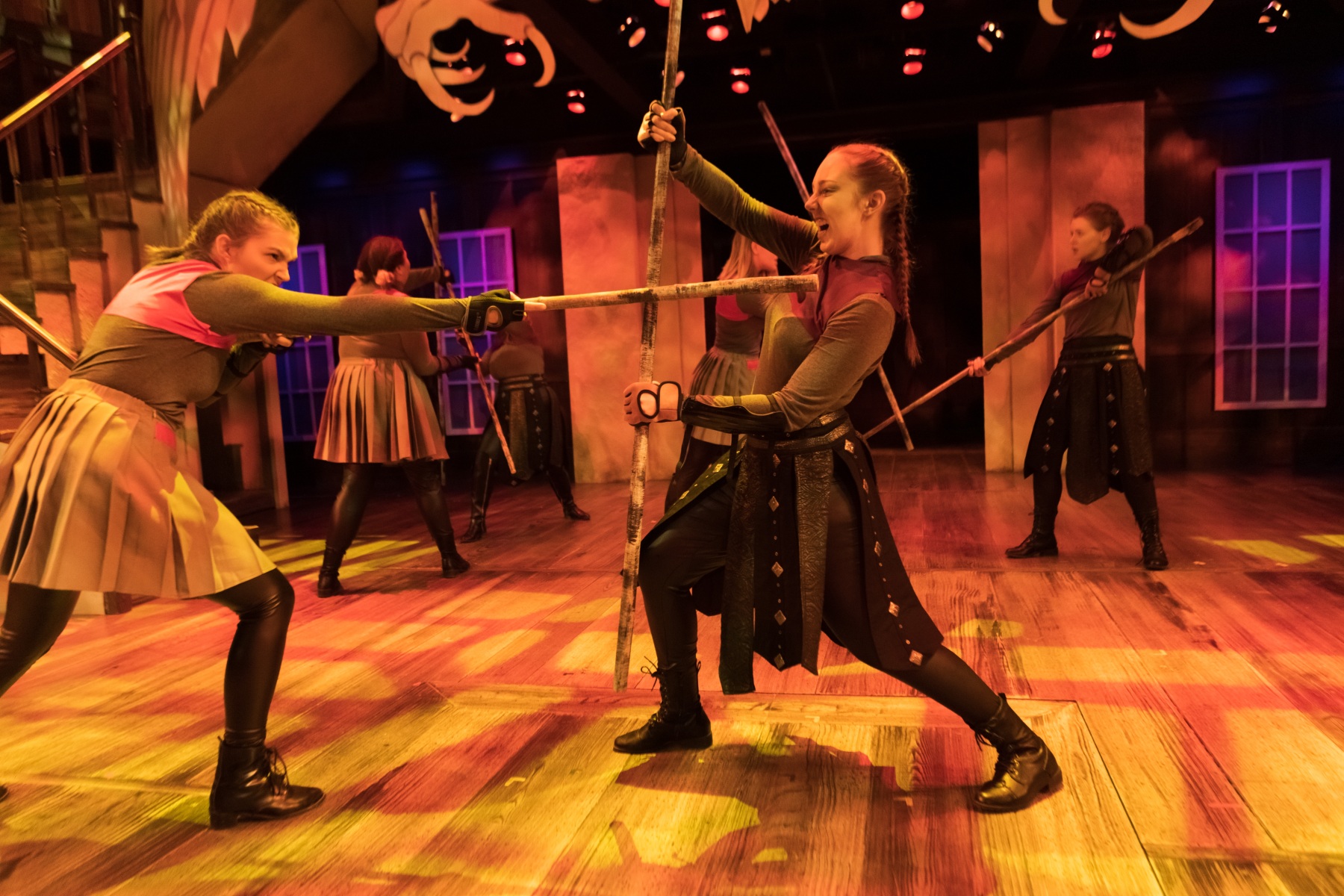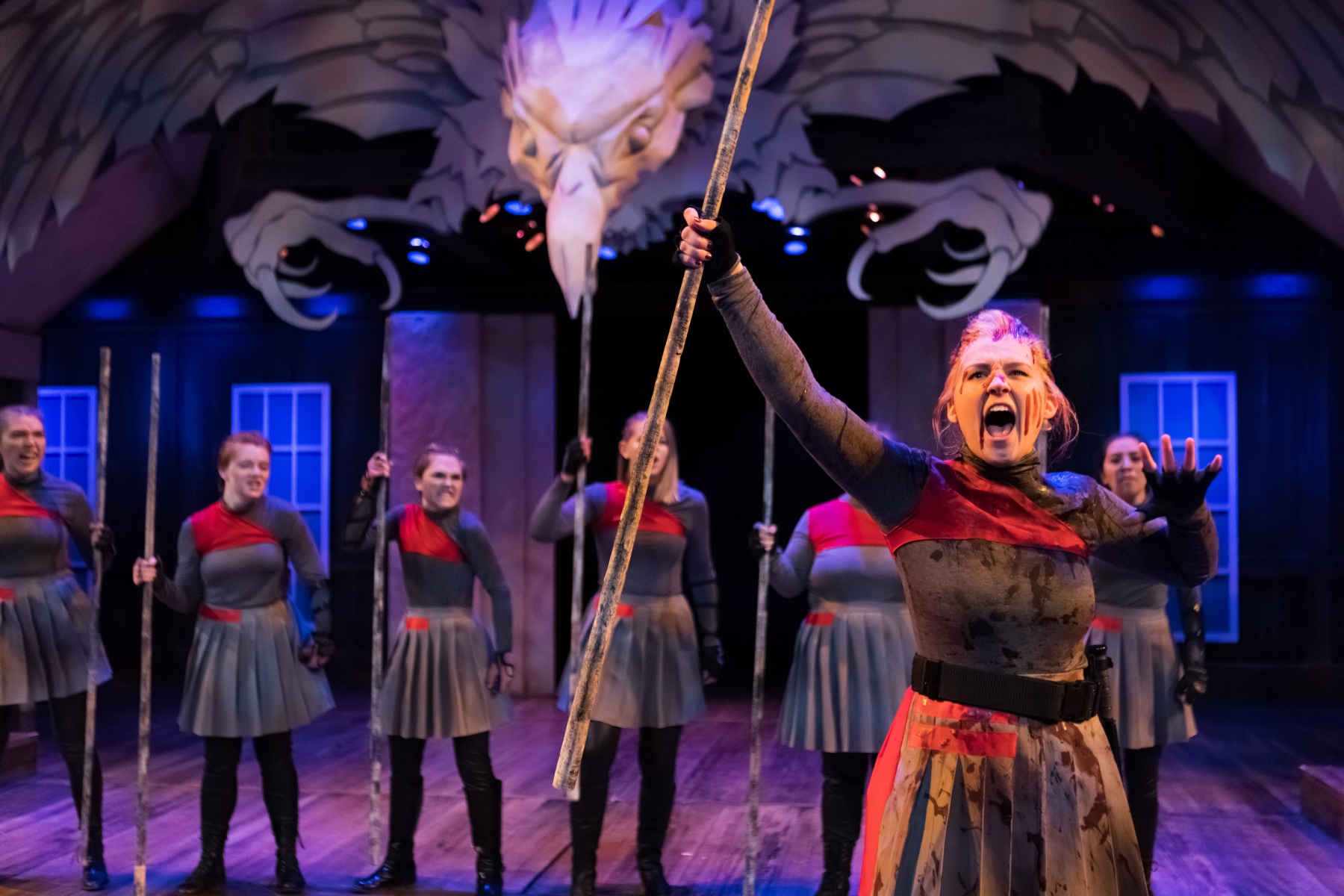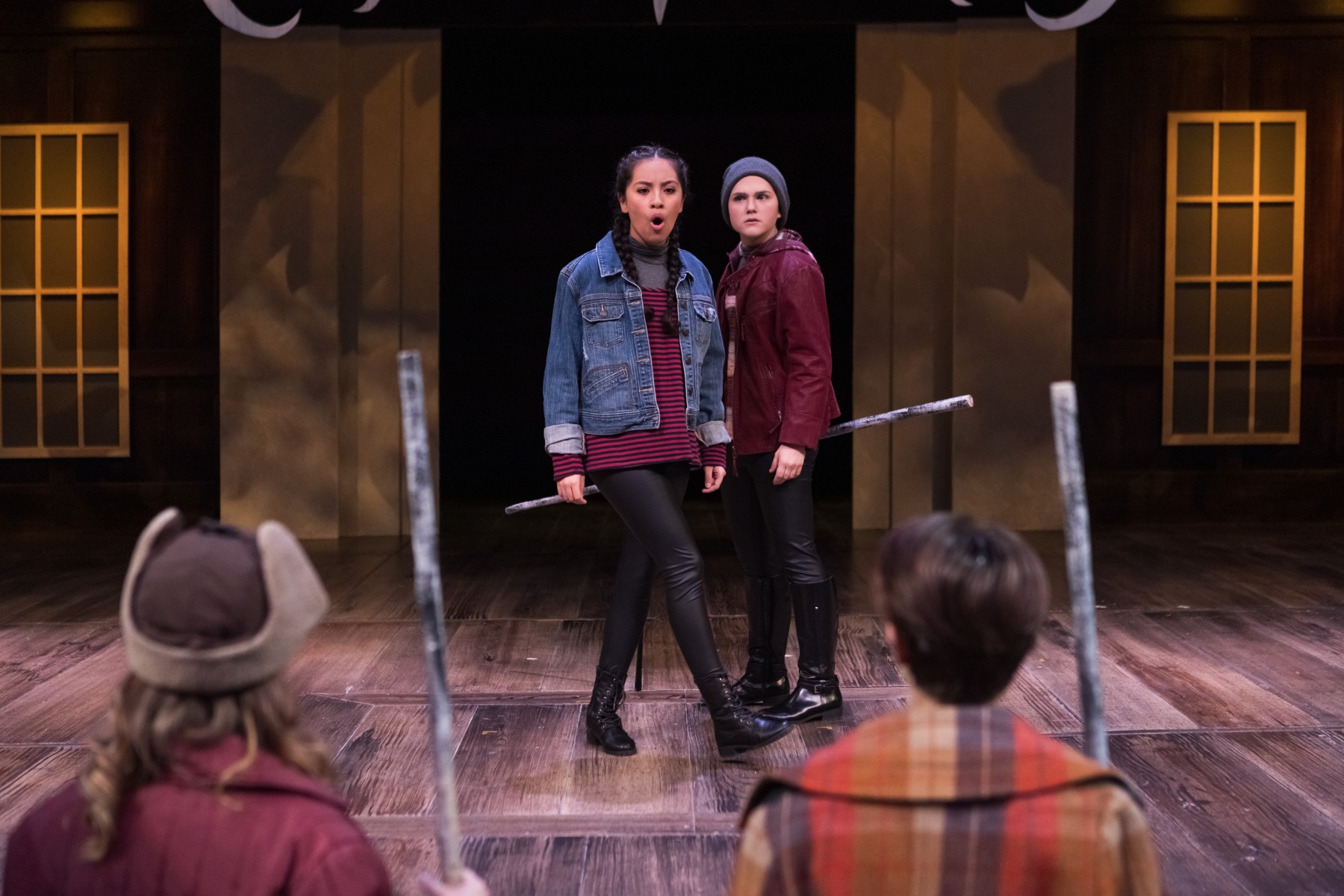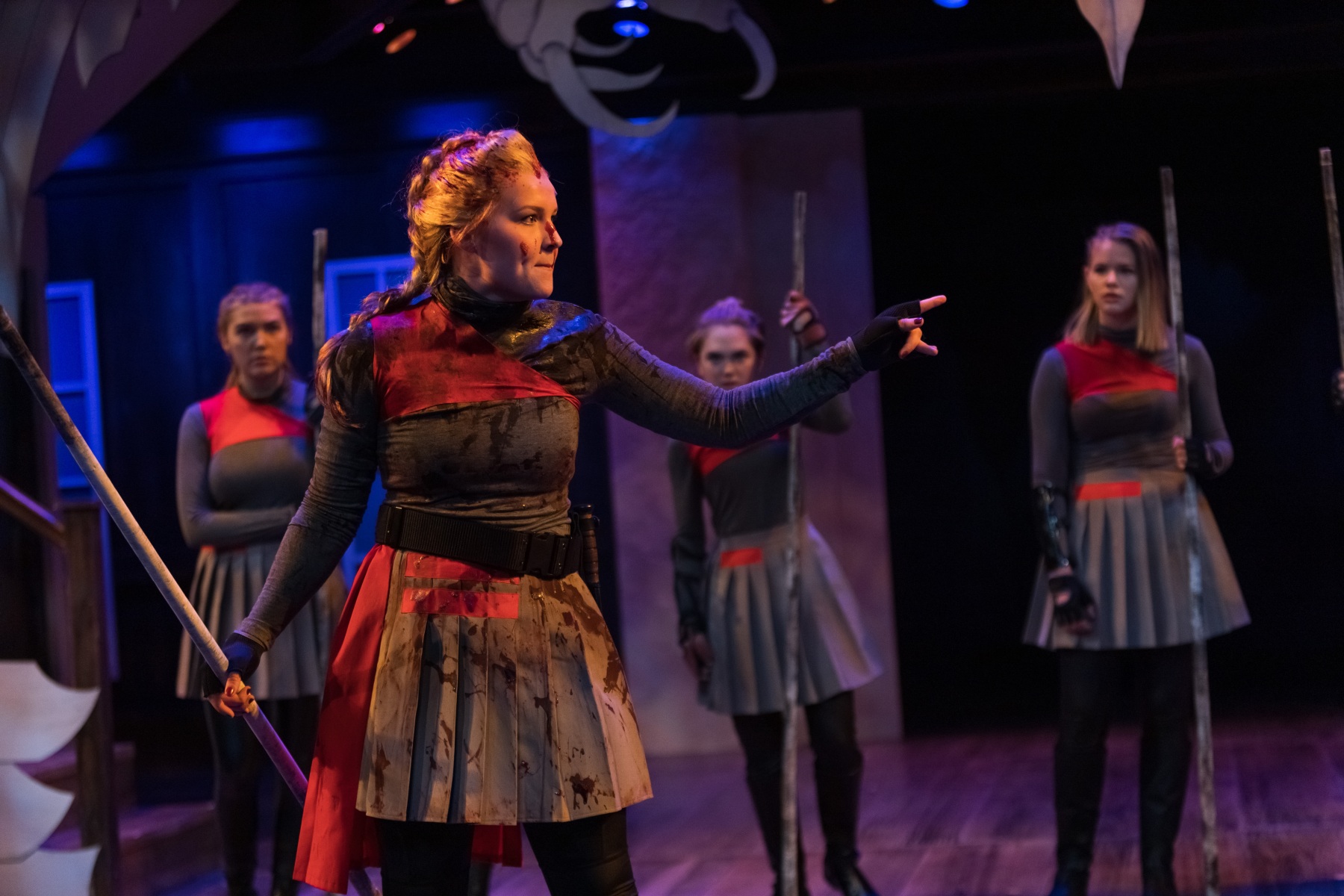| Artistic Staff | Cast |
| Director: Scott C. Knowles | Coriolanus: Savannah Selbach |
Assistant Director: William Cowser | Aufidus: Madeline Peck |
Scenic Design: Apollo Mark Weaver | Menenius: Bridgette Long |
| Costume Design: Shelby Luke | Brutus: Maycee Ham |
Lighting Design: Kolby Clarke | Sicinius: Rebecca Smith |
Sound Design: Lindsay Jones | Cominus: Kennedy Jones |
Dramaturg: Alexis Brule | Lartius: Jessica Sannar |
Stage Manager: Kianna Casey | Volumnia: Chad Henwood |
| Fight Director: Chris Duval | Virgilia: Terry (TJ) Horton |
Valeria: Nathan reeder | |
Ensemble: Emily Cacho, Mallory Blue, Finley Caciola, Stephanie Hernandez, Abbey Jolley, Emma Jones, Joella Marshall, Emma Porter, Kendra Pugmire, Trinity Rodriguez, Emily Smith, Samantha Timothy, Sarah Tynan, Adriana Villalobos |
Vision Statement
Representation matters. Political representation, artistic representation, a performance, a protest, words representing ideas, facts, opinions, or actions. All forms of representation come with inherent types of power. Coriolanus is about the power of such representation. Who represents whose interests. Whose voices are heard or had or manipulated. Who has power and how is it morally valanced? Who has the right to a voice? In act 2, scene 3, the third citizen states “we have power in ourselves to do it, but it is a power that we have no power to do.” The plebeians of this Rome exist in a world in which they have power that lacks power. They are ruled by the aristocracy and their own tribunes while still afforded the opportunity to offer or deny their voices.
Martin Gilens and Benjamin Page’s “Testing Theories of American Politics: Elites, Interest Groups, and Average citizens” concludes that “economic elites and organized groups representing business interests have substantial independent impact on U.S. Government Policy, while average citizens and mass-based interest groups have little or no independent influence.”[1] In Shakespeare’s own time, England was dealing with corn riots in Oxfordshire (1557) and the Midlands (1607). The shortage of corn was due to the displacement of grain fields by pasture lands and the enclosure of formerly public lands for private use. As Marjorie Garber points out, “the tension between high and low was exacerbated by fashion, since starched ruffs of the aristocrats were maintained by the use of cornstarch, rather than feeding the people, the corn that was grown thus often contributed to the elegance of courtiers.”[2] The problems of representation, power, and the ability to maintain a voice is scattered throughout time. It impacts us now and will continue to influence our lives for the foreseeable future.
In this production the themes of representation, power, and voice will be strewn throughout while dealing with the actualities of the facts and circumstances presented in the text. We must find ways of illuminating the issues outlined above without hijacking the story outside of what it is. How does the story represent our own time and how can we emphasize its impact subtly. How is it a story for all times? We are not in an historical Rome, Shakespeare certainly wasn’t, and this gives us flexibility to explore these ideas.
[1] Martin Gilens and Benjamin Page, “Testing Theories of American Politics: Elites, Interest Groups, and Average citizens” Perspectives on Politics 12.3 (September 2014): 564.
[2] Marjorie Garber, Shakespeare After All (New York: Anchor Books, 2005) 778.
